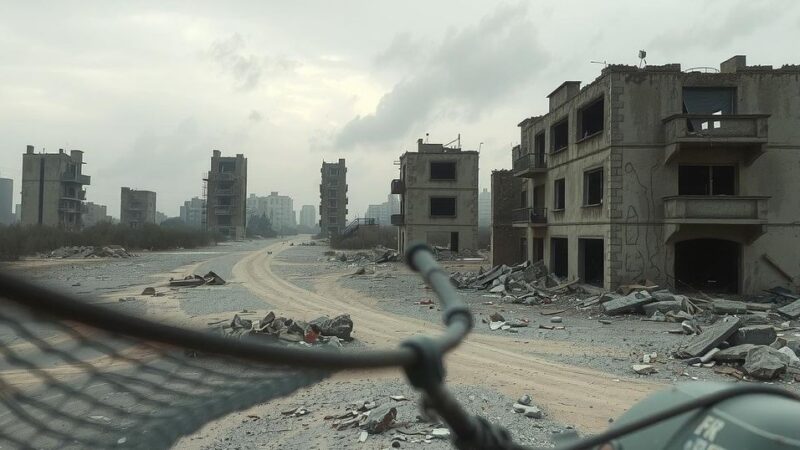Bahía Blanca, Argentina, experienced record rainfall of 220mm, leading to severe flooding and evacuations. The municipality suspended all activities for public safety, while emergency services were mobilized. Additional rain is expected, prompting further safety measures in surrounding areas.
Recently, Bahía Blanca, an Argentine city in Buenos Aires Province, experienced record-setting rainfall, surpassing historical rates. The municipal government has declared a complete halt to all activities as a precautionary measure for public safety.
Beginning at approximately 4 a.m., the torrential downpour accumulated to 220mm, which led to severe flooding, prompting the evacuation of at least 40 families, including infants from a neonatal hospital. Schools and public transportation services were suspended, and the airport was closed as authorities advised residents to remain indoors.
In response to the crisis, Security Minister Patricia Bullrich stated that a Unified Command was established to coordinate emergency efforts with various national security agencies. She emphasized, “We are firm, working tirelessly to assist, contain, and protect every neighbor in this disaster.”
The National Meteorological Service issued an orange alert with predictions of additional rainfall. Evacuation centers were established, and the Armed Forces dispatched vehicles and boats to aid affected areas. Defense Minister Luis Petri took charge of relief operations, collaborating with local authorities.
Bahía Blanca, according to the 2022 census, had a population of 336,574, ranking it among the larger cities nationwide. The storm was forecasted to impact Mar del Plata next, prompting local authorities to suspend classes and mass gatherings. Residents were urged to take safety precautions amid warnings of strong winds and possible hail.
In conclusion, the unprecedented storm in Bahía Blanca has resulted in significant challenges, including extensive flooding and the evacuation of families. The local government is actively responding to the emergency by halting all activities and coordinating with national emergency services. As forecasts predict further adverse weather conditions, authorities continue to prioritize the safety of residents in the affected areas.
Original Source: en.mercopress.com






